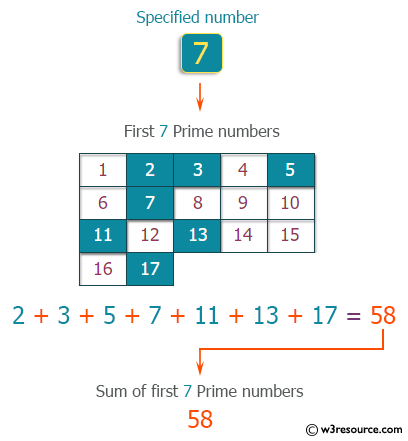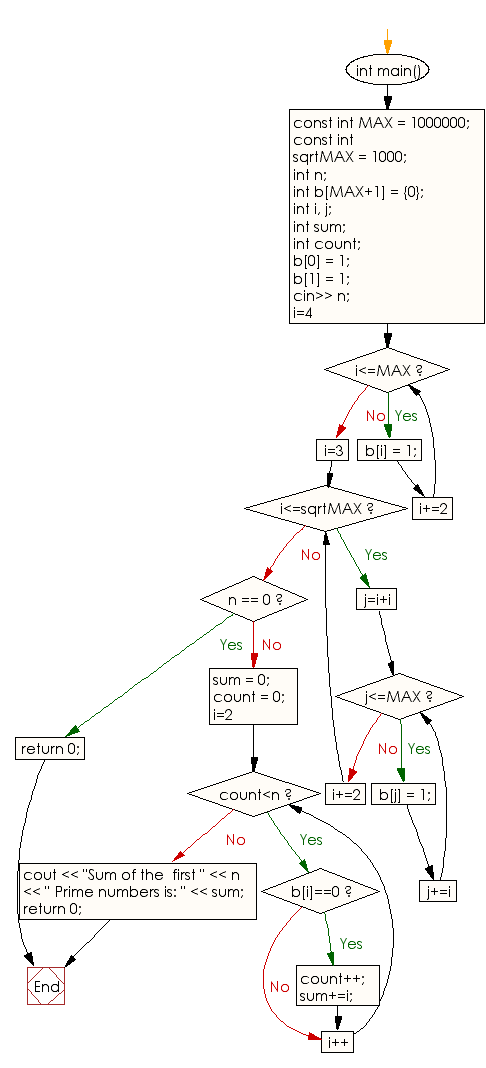C++ Exercises: Compute the sum of the specified number of Prime numbers
Sum of First n Primes
Write a C++ program to compute the sum of the specified number of prime numbers.
For example when n = 7,
s = 2 + 3 + 5 + 7 + 11 + 13 + 17 = 58.
Visual Presentation:

Sample Solution:
C++ Code :
#include <iostream> // Header file for input/output stream operations
using namespace std;
int main() {
const int MAX = 1000000; // Constant for the maximum value
const int sqrtMAX = 1000; // Constant for square root of the maximum value
int n; // Variable to store the user input for the count of prime numbers
int b[MAX + 1] = {0}; // Array to mark non-prime numbers
int i, j; // Loop control variables
int sum; // Variable to store the sum of prime numbers
int count; // Variable to count the number of prime numbers found
b[0] = 1; // Mark 0 as non-prime
b[1] = 1; // Mark 1 as non-prime
cin >> n; // Input the number of prime numbers to be found
// Mark multiples of 2 as non-prime numbers
for (i = 4; i <= MAX; i += 2)
b[i] = 1;
// Sieve of Eratosthenes: Mark multiples of odd numbers as non-prime
for (i = 3; i <= sqrtMAX; i += 2)
for (j = i + i; j <= MAX; j += i)
b[j] = 1;
// If input is 0, exit the program
if (n == 0)
return 0;
sum = 0; // Initialize sum to 0
count = 0; // Initialize count of prime numbers found to 0
// Loop through the array to find and sum the first 'n' prime numbers
for (i = 2; count < n; i++) {
if (b[i] == 0) { // If the number is not marked as non-prime
count++; // Increment the count of prime numbers found
sum += i; // Add the prime number to the sum
}
}
// Display the sum of the first 'n' prime numbers
cout << "Sum of the first " << n << " Prime numbers is: " << sum;
return 0; // Indicating successful completion of the program
}
Sample Output:
Sample Input: 7 Sum of the first 7 Prime numbers is: 58
Flowchart:

For more Practice: Solve these Related Problems:
- Write a C++ program to compute the sum of the first n prime numbers using an efficient prime-checking algorithm.
- Write a C++ program that generates prime numbers until n primes are found and then outputs their sum along with the list of primes.
- Write a C++ program to calculate the sum of the first n primes and then determine the average of these prime numbers.
- Write a C++ program that computes the sum of the first n prime numbers recursively and compares the result with an iterative solution.
Go to:
PREV : Difference Between Max and Min Numbers.
NEXT : Goldbach Conjecture for n.
C++ Code Editor:
Have another way to solve this solution? Contribute your code (and comments) through Disqus.
What is the difficulty level of this exercise?
